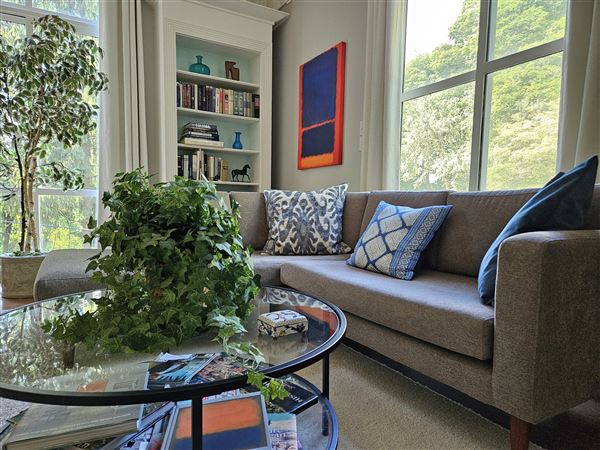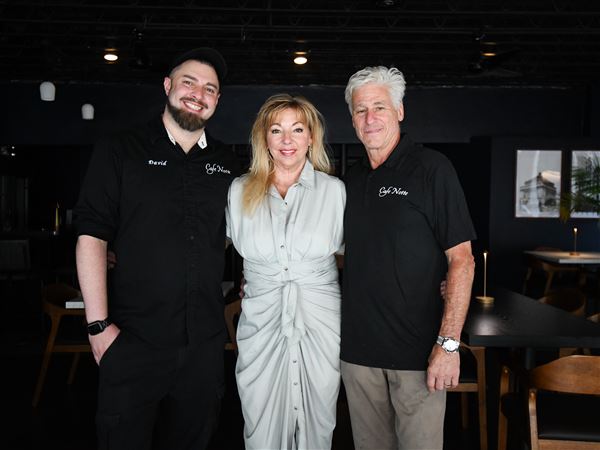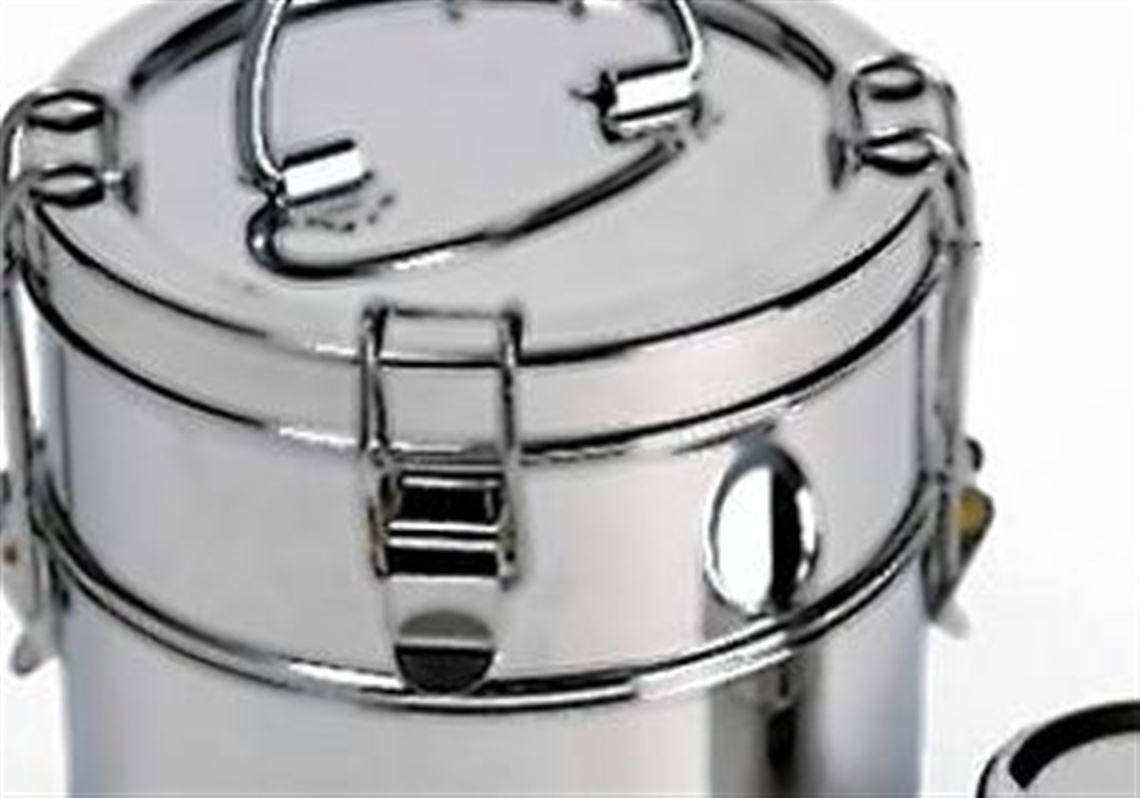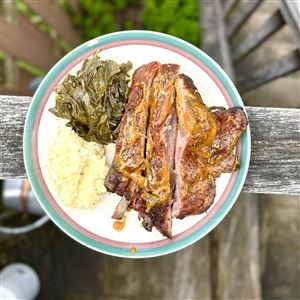Sustainable, compostable, biodegradable, recyclable.
Trying to make ecologically sound decisions about what you use and reuse in the kitchen and your household is enough to make your head combustible.
But think of it: Every day you make choices about containers and reuse. So every day you can make a positive impact on the environment by saying no to something grossly over-packaged, or even by simply buying plastic sandwich bags that use less plastic than the standard. (One of the most irritating things I get in the mail are lavish media kits with six more layers of wrapping and stuff than is necessary. Marketers need to get greener, and ballyhoo it, too.)
At 4:15 p.m. Saturday, Mario Andretti will raise a glass to kick off The Great Pennsylvania Wine Toast, an attempt to break the Guinness world record for wine tasting as well as celebrate the state's wine industry. He'll recite the winning entry in the "Write the Ultimate Wine Toast" competition, for which there are five finalists, including Brian Edward of Sewickley and Ricki Krivijanski of Greensburg. If you want to join in, call a participating winery nearby for start times. They include Rustic Acres, Butler County (724-283-6236); Deer Creek, Clarion County (814-354-7392); Christian W. Klay, Fayette County (724-439-3424), Windgate Winery, Indiana County (814-257-8797) and Greendance, The Winery at Sand Hill, Westmoreland County (724-547-6500). A complete list of participating wineries is at pennsylvaniawine.com/overviewtoast.aspx. Proceeds from the event benefit The Fund for Children & Youth in Lehigh Valley. The record for largest wine tasting at multiple venues is currently 17,540 people at more than 400 pubs in the United Kingdom on May 21, 2008.
-- Margi Shrum
Making better consumer choices can be a daunting task, so much so that a completely sustainable package, one that in every way has a zero, or less, net effect on the environment, remains a goal, not reality, says a spokesperson for the Sustainable Packaging Coalition.
"There's no sustainable package," says Anne Bedarf, SPC project manager. Adding: "I'd like to use the word 'yet.' "
Developing sustainable packaging, she adds, is "kind of like a basketball game: though you know it's not achievable to make every basket, you keep working to get it in the basket as many times as you can, and strive for continual improvement."
The SPC is an effort of GreenBlue, a nonprofit in Charlottesville, Va. , dedicated to creating "closed loop systems" in industry. "The idea is that we can create industrial systems that are more like natural systems -- like an industrial ecology that mimics our natural ecology," says Ms. Bedarf. For manufacturers and consumers alike, it's a three-part effort: Trying to make economics, environmental and social issues work together.
For consumers, strides are being made -- such as concentrated products that use smaller plastic containers -- and companies most definitely see profit in being more ecologically responsible, she says.
A challenge remains in making the choices no-brainers for consumers, to which I say amen. "Consumers shouldn't have to choose or be material engineers to figure out what's right," said Ms. Bedarf during our wide-ranging, and sometimes complex, discussion about such things as recycling and what to look for on labels.
She mentions something that takes me aback: Even as companies find ways to package their products in smaller and smaller containers, consumers don't always warm to them. Concentrated detergents "absolutely saved millions of pounds of plastic and most of that is No. 2 high-density polyethylene," but "the challenge is, people see a smaller thing. They think they are being ripped off. But we don't need to be hauling around a bunch of water."
And in some instances, even when manufacturers are able to achieve, say, compostability, there's a question of where to compost it. Many places lack large-scale composting facilities, says Ms. Bedarf. (Pittsburgh does have two composting sites, both run by Agrecycle Inc.; find details, or locate a facility near you by going to findacomposter.com.)
So what are intelligent yet stressed-out home managers/cooks/budget-balancers supposed to do?
I mean, we want to help.
"First and foremost, think about the product. There's so much that goes into growing and processing food that that should be the first thing," says Ms. Bedarf. "Look for local food, look for organic food, eat healthy food."
Choose recyclable materials. Although I shrink from plastic bags, "they're fully recyclable," she notes, acknowledging the issues with litter. (Remember: All choices have issues.) Check with your municipality to make sure you're recycling everything you can. Select products packaged in certified fiber, meaning it's grown in forests that are sustainably managed.
Do home composting, or encourage your municipality to work toward opening a composting facility. "People are getting into it as a business and eventually it's going to be cheaper to do than a landfill," says Ms. Bedarf.
Do something as little, she says, as reusing your coffee mug when you get refills.
For more on GreenBlue and the Sustainable Packaging Coalition, go to greenblue.org or sustainablepackaging.org.
Here are a few products that may meet some greener goals.
Want to reduce the number of plastic sandwich bags you use? Reusies are sandwich and snack pockets for your lunch box. Made of 100-percent cotton, lined with waterproof nylon, free of lead, BPA and phthalates, and fastened with Velcro, Reusies can be washed by hand, in the dishwasher or laundry. Reusies.com. The products are the work of mothers Becky Harper and Karen Whorton of Seattle.
If you're handy, you can make your own sandwich wraps. They are among the kitchen-related items in "Sewing Green: 25 Projects Made with Repurposed and Organic Materials" by Betz White (Stewart, Tabori & Chang, 2009, $24.95). Others include veggie and lunch bags made of 100-percent organic cotton.
Closer to home, Equita, 3709 Butler St., Lawrenceville, carries tiffins, reusable stainless steel food containers. They include an industrial-looking two-part round container with locking top and handle (can you just see your grandpa toting this to the steel mill? I can), $26. Shopequita.com; 412-353-0109.
I like the idea of glass containers. Pyrex has introduced a line of "eco-friendly" reusable storage containers with BPA-free, no-leak lids. Round and rectangular, nestable in your closets and microwave/oven/fridge/freezer safe. Sizes range from 2 to 11 cups and are sold individually or in sets, $18.99 to $35.99. pyrexware.com.
Green Cooking Pots, say twins Mica and Cafe on their website greencookingpots.com, are "free of any chemicals," $33 to $128.
Again closer to home, PNC has opened the Eco Bistro at Allegheny Center, mostly to serve its 2,000 employees at the site on the North Side, but it's also open to the public. Run by Parkhurst Dining Services -- it is also now sourcing cage-free eggs for Eat'n Park -- the Bistro used LEED standards in construction. Its menu includes fair-trade items, rGBH-free milk, trans-fat-free foods, and they're even recycling cooking oil for biodiesel fuel.
This one is a tad tongue-in-cheek: The "I'm Not a Paper Bag" lunch bag. The 100-percent recycled cotton, lead-free bag "cancels out its own small carbon footprint in just a few uses," says a news release. Hmmmm ... well, having researched sustainable containers, I'm skeptical. It's $14.95 at reuseit.com.
Suspend your skepticism: The Washington County Agricultural Fair is the real deal, beginning Saturday through Aug. 21. The Washington, Pa., farmers market e-mail newsletter, always one of my faves, says it's a great chance to check out the next generation of farmers, as 4-H and FFA members strut their stuff. At the fairgrounds on Route 19, just outside of Washington. $6 admission daily; washingtonfair.org. Love the poster; guy on it sort of looks like Glenn Ford. Rugged.
Was Colonial American baking sustainable? I'm guessing so. Check out the culinary form this weekend at Fort Ligonier Field Ovens, in Ligonier, as staff members from the Old Barracks Museum of Trenton, N.J., appear there to fire them up and make the 6- to 7-pound loaves that were part of a soldier's daily ration. The barracks housed British and Irish soldiers during the French and Indian War. Fort Ligonier is at the intersection of routes 711 and 30. Fortligonier.org; 724-238-9701.
I can't sustain this. Signing off.
First Published: August 12, 2010, 8:00 a.m.
















